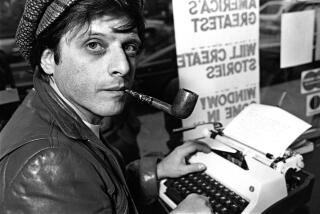Unfinished novels from Hemingway, Ellison, James and how they rank
Few authors manage to shuffle off this mortal coil just as their final, finished work hits bookstores. Heirs are understandably tempted to let those incomplete works come to light -- with varying degrees of success.
Ernest Hemingway’s “The Garden of Eden” Begun in 1946, it was published in 1986, 25 years after Hemingway’s suicide. Two thirds of Hemingway’s unwieldy manuscript was excised. E.L. Doctorow lamented, “this cannot have been the book Hemingway envisioned.” Generally awful, it is remembered mostly for its explicit threesome scenes.
Ralph Ellison’s “Juneteenth”/”Three Days Before the Shooting...” Ellison’s “Invisible Man,” published in 1952, won the National Book Award and secured his artistic legacy — but he never completed another book. From the thousands of pages he left behind, the posthumously published “Juneteenth” was roundly considered to have fallen short; later, the more complete, 1,100-page version of the novel, “Three Days Before the Shooting...,” mostly proved that without Ellison, the book could never be finished.
Henry James’ “The Sense of the Past” and “The Ivory Tower” When James died, he left behind two unfinished manuscripts. “The Sense of the Past,” a time travel romance (yes, science fiction from the author of “Portrait of a Lady” and “The Ambassadors”) and “The Ivory Tower,” set in Newport’s Gilded Age aristocracy, were both well received when published in 1917, a year after James’ death. Perhaps that’s because his editor stuck closely to James’ own work, publishing what was written in the same volumes as James’ extensive notes and allowing readers to explore what the author had in mind without forcing the incomplete parts into the shape of a novel.
— Carolyn Kellogg
More to Read
Sign up for our Book Club newsletter
Get the latest news, events and more from the Los Angeles Times Book Club, and help us get L.A. reading and talking.
You may occasionally receive promotional content from the Los Angeles Times.








